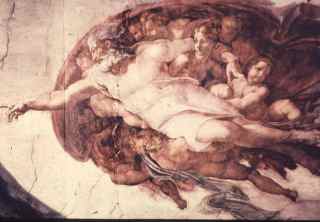Paul Wood
Leon Paul Wood (1917-1965)
Enlightened Christian Mystic

Richard Rose on Paul Wood
from: ObstaclesCleveland, Ohio, 1974
From a lecture in Cleveland, Ohio, November 12, 1974
Source: 1974-1112-Obstacles-Cleveland at www.direct-mind.org
PDF (37 pages, 190 KB): Obstacles-Cleveland-Ohio.pdf
... I had no language. I also said I knew a man who had reached enlightenment by reading, meditating and fighting with the Lord's Prayer. ... he knew nothing of Zen, he knew nothing of philosophy.
He was an aviator in World War II. His name was Paul Wood, from Dallas, Texas. But he was just a Christian, that's all, with a very average Christian upbringing, except that he believed it. He was very devout. And he became involved in the war – he was in charge of killing off a few Japanese, a few hundred thousand in fact. So he resented it. First he questioned it. He said, "I've been trained to believe that God's in charge." And he looked upon God as this patriarchal being with human justice standards. He said, "I don't approve of what I'm doing. What's going on here? Why is He allowing this to continue? – this is an evil thing that's going on, we're killing each other."
Well he began talking to himself I guess in the army, and they cashiered him out and sent him home. He kept on talking to himself. His wife cashiered him out, threw him out. His children rejected him. He still went around – he had a koan he had to solve, and it was, "Why, why, why, why?" And he went to the Bible, that was the only thing he knew – he didn't know anything about esoteric philosophy. He went to the Bible and he opened it up, and in the Bible it said that if you would have a question answered pray thusly, and it's the Lord's Prayer that followed. I might be saying this incorrectly, I don't know, but he got it out of the Bible.
So he took the Lord's Prayer and just worked on it day and night. And he analyzed it – backwards, forwards, he took the value of the words and tried to find what did he mean? Was there some meaning in there that would give him a formula, or the answer?
And the more he worked with this Lord's Prayer the worse his luck became. The family was falling apart, he was losing jobs. He was trying to build up enough courage to commit suicide. He said he took a job as a car salesman, in a dealership. He had an unusually hard day – that was it, that was the straw that broke the camel's back. He said he laid his head down on the desk and prayed for God to kill him. He didn't have the courage so he prayed for God to kill him. He said he passed out. And his experience was what followed. It lasted for days, incidentally. He was in the hospital. [inaudible]
And he came up to Akron, Ohio when I was in Akron doing some of this foraging around. He would sit and tell us about his experience. And that's all he would do. He'd just say, "All I can do is tell you what happened." And we'd say, just like anybody else would, "What would you advise us to do?" And he'd say, "Say the Lord's Prayer."
But this only worked for him. This was somehow germane to his antecedent, to his makeup. He had to attack that which he had available, and all he had available was the Lord's Prayer, the only instrument he had to work with. But he did it honestly and diligently. He never gave up. He had that same tenacity, he would follow it through, and if he couldn't get it he wanted to be killed, he wanted to die trying. And the result was he was rewarded. If you can call it a reward. But anyhow he got the answer.
Well I heard him. And I noticed that he couldn't communicate this to other people. And it was a profound experience, it lasted much longer than any experience I have ever heard of before and I was profoundly convinced. (I had mine to compare with.)
And he was in a room with some of these executives, scientists from Firestone and Goodyear down here in Akron and they were sitting there sneering at him. They thought, you know, "What kind of a nut is this?" He looked like the Crazy Guggenheim, if you're acquainted with the character, Jackie Gleason's sidekick. He looked like he'd been boiled in booze. I think he had drunk quite a bit of it in his time. He was a fat puffy guy with heavy eyes. But when he started talking you noticed a change; there was some sort of a change that came over him.
Incidentally he never went back with his wife. He met another girl, one of the most beautiful women I had seen in a long time, he had picked her up in Texas someplace. So these wiseacres all thought, "Well, for a man who's reached enlightenment, he's picked himself a good looking wife, so we'll get ahold of her." This fellow whose house I was in [Robert J. Martin] had ten kids [see Martin's obit] and they were kicking footballs through the windows, so we went out into the garage to hold our meeting. So Paul Wood went to the house to go to the bathroom and in came his wife with coffee or something. And one fellow says to her, "Hey, what do you make of your husband?" She never hesitated in her stride or batted an eye, she says, "My husband is God." And I kind of think she meant it. I think she knew it.
Of course, the other people there couldn't quite get it. Because they didn't lead spiritual lives, they were basically scientists. All they knew were materialistic sciences. ...